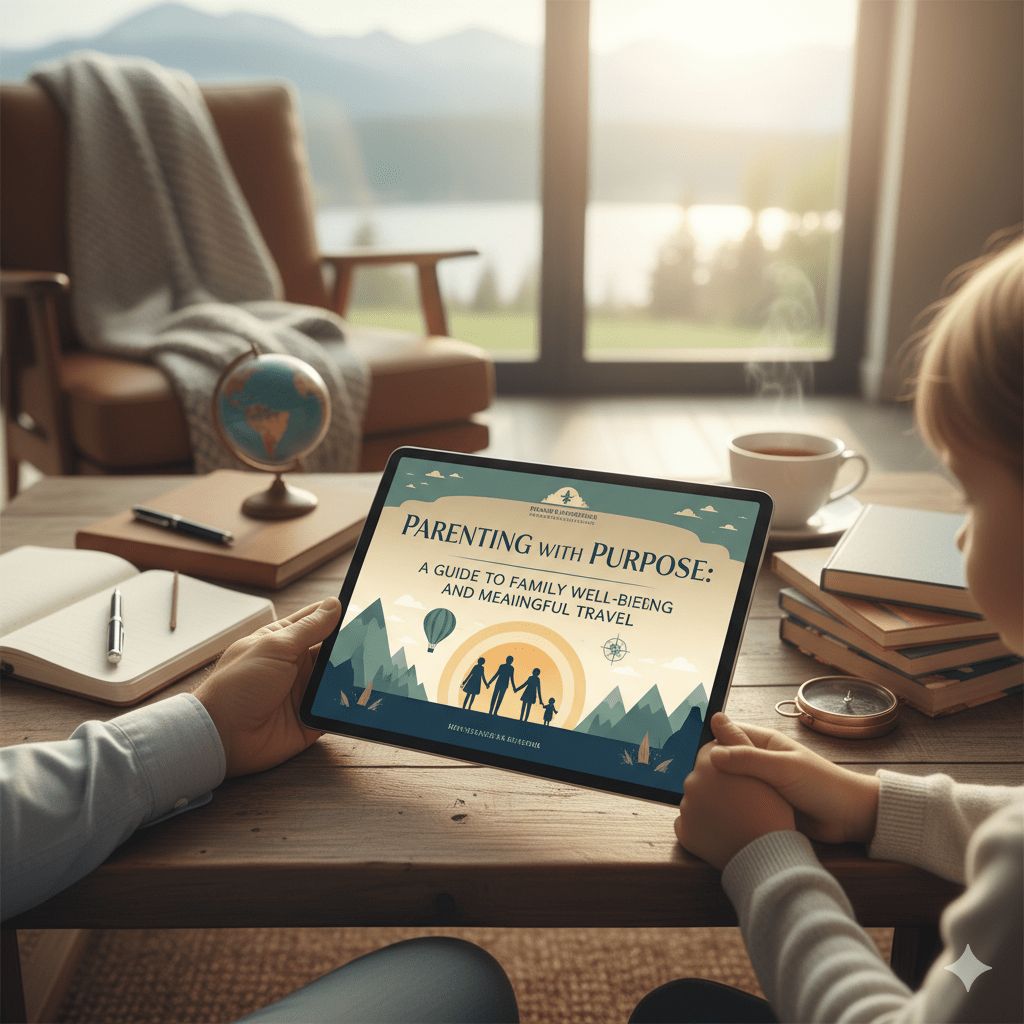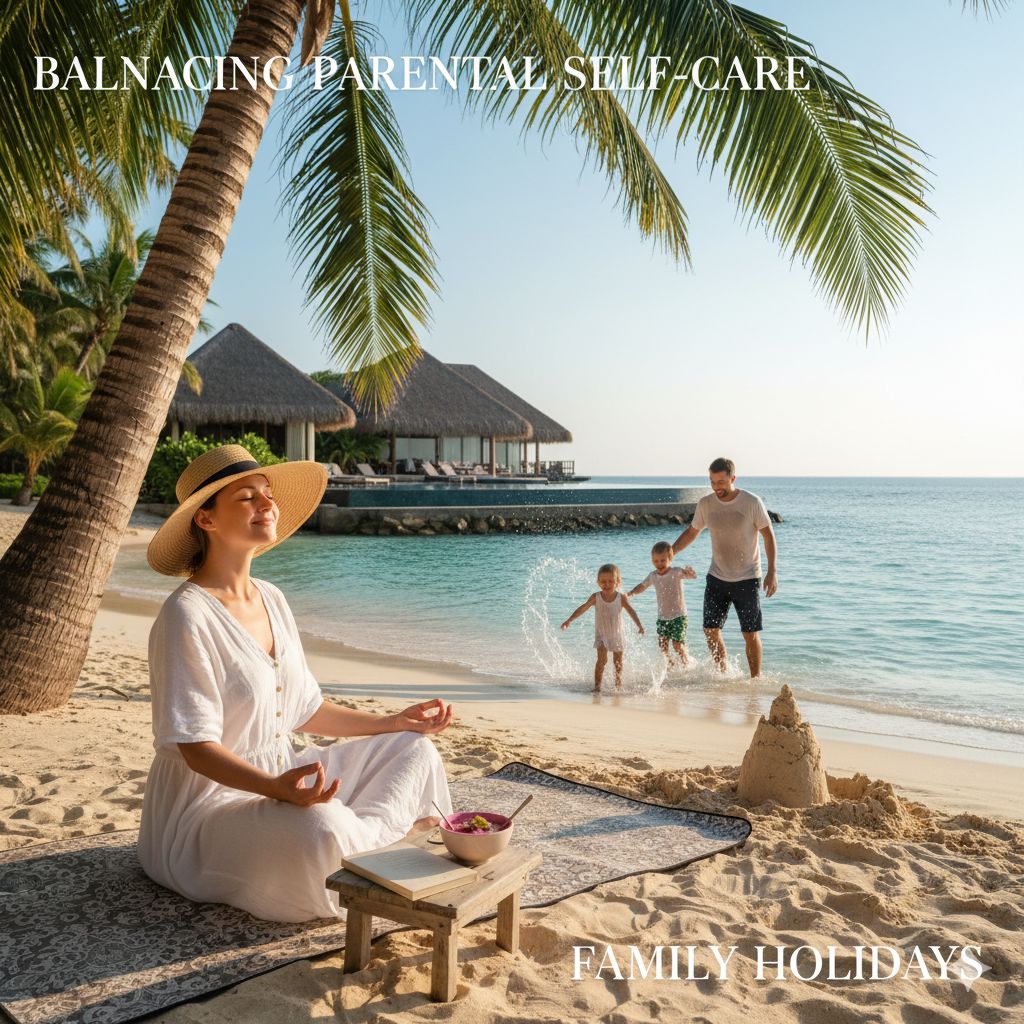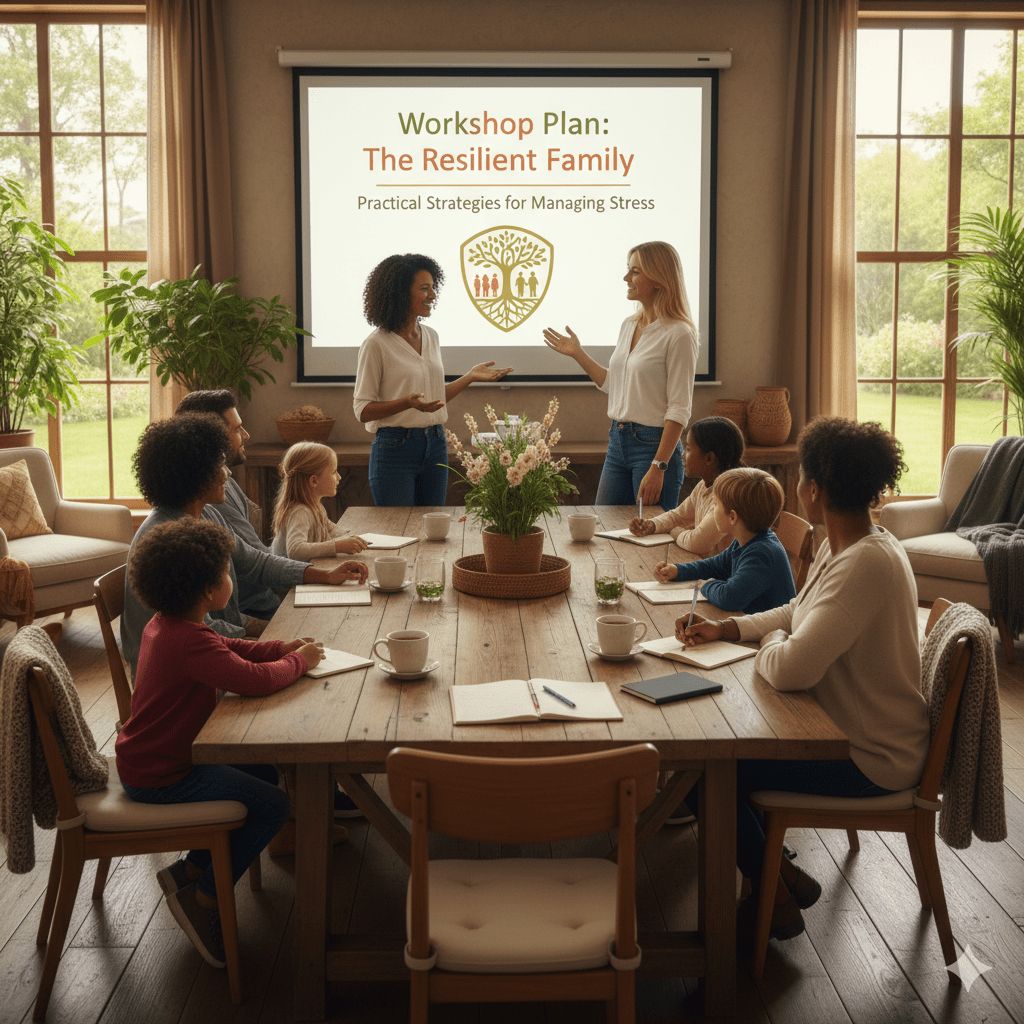- Ark's Newsletter
- Posts
- 5 Surprising Truths That Will Completely Change How You Plan Your Next Family Holiday
5 Surprising Truths That Will Completely Change How You Plan Your Next Family Holiday
Introduction: The Vacation vs. Reality Problem
We’ve all seen the pictures: a smiling family on a pristine beach, relaxing without a care in the world. But the reality of a family holiday is often a different story—one filled with exhaustion, cranky kids, and a desperate need for a vacation from the vacation. This disconnect is so common that parents have developed a new vocabulary to manage expectations. As one wise parent on Reddit put it, “A vacation with kids isn’t a vacation; it’s an away game.”

The dream of a perfect, relaxing getaway creates immense pressure, leading to a cycle of over-planning and guilt. In fact, a survey of UK parents revealed that nearly half (49%) feel guilty about wanting to do their own thing without their children on a family holiday. But what if the key to a better trip isn’t doing more but strategically doing less? These five truths, backed by research and real-parent experience, will challenge everything you think you know about planning a family holiday and help you build one that’s truly memorable.
——————————————————————————–
1. The Golden Rule: The Less You Do, the Better the Trip
When planning a travel itinerary, especially with kids, the single most important rule is this: DO LESS. It’s a counterintuitive principle that will make your trip better, your family happier, and your budget go further.
The psychology behind this is simple. In their book The Power of Moments, Chip Heath and Dan Heath found that after a few years, most people only remember one or two highlights from a vacation and, crucially, how they felt at the end of it. Overstuffing your schedule in a rush to “do it all” only leads to exhaustion and meltdowns (from both kids and adults). The lasting memory becomes one of stress, not joy.
Embrace the fact that downtime is not wasted time; it’s an essential part of the experience. Build unstructured time into every single day. Go even further and schedule a full day of nothing—a “Beach Day” or “Enjoy the Resort Day” with no firm plans. Unexpected highlights, the ones that become cherished family stories, often happen in these quiet, spontaneous moments, not in a frantic race from one attraction to the next.

——————————————————————————–
2. Your “Me Time” Is Actually a Gift to Your Kids
Parental guilt is a powerful force, especially on holiday. The same Neilson survey that found 49% of parents feel guilty showed that mothers, in particular, struggle, with 59% reporting some level of guilt about wanting personal time. But what if that “me time” is one of the most beneficial things you can give your children?
Clinical psychologist Dr. Elizabeth Kilbey argues that taking time away from children on holiday counters the effects of “helicopter parenting.” It allows kids the space they need to develop autonomy, become more resilient, and learn to use their own resources to meet their needs. By stepping back, you are gently preparing them for the challenges they’ll face throughout their lives.
Furthermore, as an expert from Harvard Medical School points out, when parents model self-care, they are also teaching their children a vital lesson in how to engage in healthy coping and manage stress. She puts it perfectly:
That you have to put on your oxygen mask before helping your child. Because if you don’t have anything to give, where are your kids going to draw from?
This shift in perspective is transformative. Prioritizing your own well-being isn’t selfish; it’s a long-term investment in your child’s emotional health and self-sufficiency.
——————————————————————————–
3. The Guest List Paradox: More Family Can Mean Less Fun
The number one reason families go on holiday is to spend time together (94.04%). It seems logical that including more loved ones—grandparents, aunts, uncles, cousins—would lead to more connection and better memories. However, academic research reveals a surprising paradox.
A study published in the African Journal of Hospitality, Tourism, and Leisure found that the more extended family members join a holiday, the more challenging it can be to maintain a positive quality of life, particularly for mothers. The reasons are rooted in the unique pressures of group travel: trying to meet divergent needs, navigating clashing personalities, and managing the potential for conflict that arises from “close physical proximity and the extended time spent together.”
The data is striking. The study found that single-parent families have nearly 14 times higher odds of experiencing a good quality of life on holiday compared to extended families traveling together. While multi-generational travel can be wonderful, it’s crucial to acknowledge that a smaller, more focused group often leads to a more restful and positive experience for everyone involved.

——————————————————————————–
4. Your Kids Just Want to Play (And They Don’t Need You 24/7)
There is often a major disconnect between the holidays adults plan and the ones children actually enjoy. Parents tend to focus on educational value, cultural sites, and historical landmarks. But research confirms what many have long suspected: “Children pay more attention to play in travel.”
For young kids, the highlight of an expensive, elaborate trip is often something simple. As one family travel expert notes, for years, the favorite part of any vacation for her young children was the humble hotel pool. It mattered more than the national parks, museums, or scenic drives.
This preference for play also means kids don’t need—or even want—their parents around 24/7. While many parents are skeptical of kids’ clubs, children themselves often love the experience. In their own words, it’s a chance to make friends and have adventures on their own terms.
“I thought I wouldn’t like the club, but I made new friends, and it was brilliant.” – Seth, age 4
“We got to do so much cool stuff. We went to the local village to get ice cream on kayaks, and the beachies took us out on catamaran joyrides.” – Cameron, age 11
Leaning into your children’s desire for simple fun and independent play takes the pressure off you to be their constant source of entertainment and opens the door for everyone to have a better time.
——————————————————————————–
5. Redefine “Success” From a Perfect Itinerary to a Shared Experience
Given the stress, the expense, and the unpredictability, it’s easy to feel like a family trip is a failure if it doesn’t go perfectly. But the goal of family travel isn’t a flawless itinerary; it’s connection. Or, as one parent on Reddit humorously but accurately described it, a trip is about “bonding with your family through shared suffering lol.”
Parenting blogger Donna Wishart embodies this redefinition of success. Initially skeptical of kids’ clubs, she was surprised to find that the daily time apart gave her family more to talk about when they regrouped. It also gave her and her husband the freedom to pursue their own passions—she went kayaking, and he got PADI qualified.
Similarly, writer Harriet Shearsmith found that a few child-free evenings on holiday allowed her and her partner to “reconnect in a way that we hadn’t in years, which has brought us closer together.”
The most successful trips are not the ones where every moment is perfect. They are the ones that create connection and lasting memories—for the kids, for the parents as a couple, and for the family as a whole. Often, these moments of connection arise directly from the imperfect, spontaneous, and unscripted parts of the journey.

——————————————————————————–
Conclusion: Your New Holiday Mission
Ultimately, the key to a better family holiday is a profound shift in mindset. Stop chasing the elusive, relaxing “vacation” and instead embrace the messy, memorable, connection-building “trip.” It’s not about checking off a list of sights; it’s about creating a space for your family to be together in a new way.
So as you plan your next adventure, instead of asking, “How can we do it all?” perhaps it’s time to ask a new question: “What is the one memory we want to create together, and how can we make space for it to happen?”